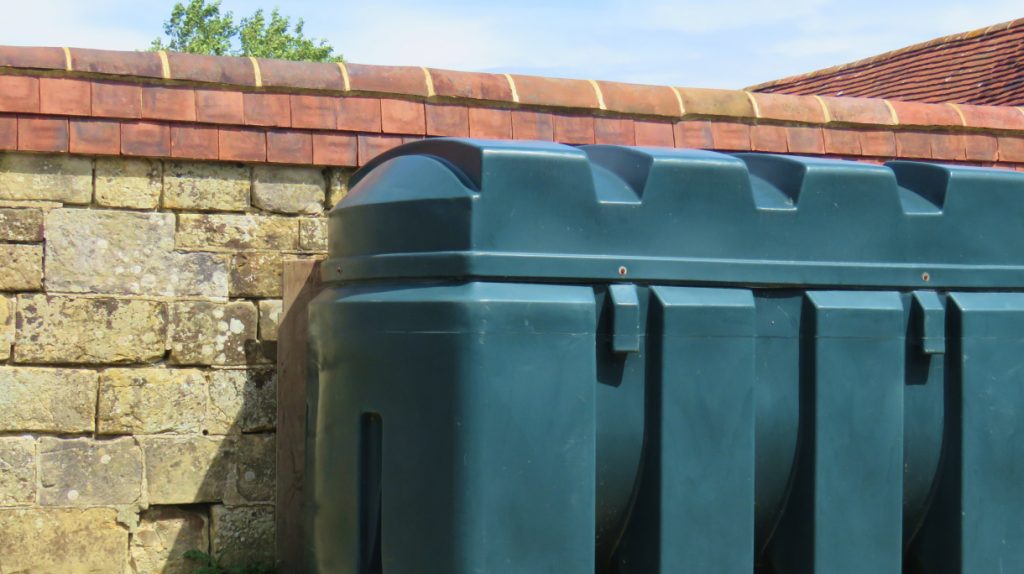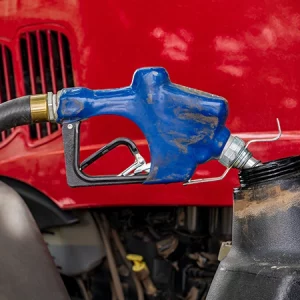Is it time for a heating oil top-up? Whether you’ve just had a new oil tank installed or you want to get the best from your oil usage, it’s important to plan your heating oil delivery. Off-grid homes don’t have the benefit of being connected to the National Grid, and could risk running out in an emergency.
Of course, the good news is there are plenty of ways to monitor your fuel levels. You can also optimise your costs by looking after your oil tank needs and planning around the time of year. It all starts with the size of your oil tank.
How Much Heating Oil Do I Need?
You can order a minimum of 500 litres of heating oil every time you buy with us. This quantity may sound high, but it can last for months. It’s also more cost-effective to order larger volumes of heating oil.
The amount of heating oil you’ll need depends on your tank size and your overall oil consumption. In the UK, oil tank sizes can range from as small as 500 litres to 10,000 litres. The second consideration is energy consumption. The larger your home and the more people using energy, the larger your fuel needs will be.
As a guideline, the average UK household uses 26,999 kWh of energy each year. If one litre equates to 10.35 kWh, then this totals between 1,700 and 1,800 litres per year – or three 500l tanks. Of course, this can vary massively depending on a range of factors.
What Can Affect My Energy Consumption?
Oil levels can fluctuate depending on the time of year and the efficiency of your home heating system. You may also get better energy usage if you regularly maintain your oil tank. Be mindful of factors including:
- The time of year – home heating oil is in higher demand during the winter months.
- Your fuel tank condition – if sediment is building up or there are leaks in your oil tank, kerosene may not burn as efficiently.
- The age and condition of your oil boiler – these should be inspected at least once a year, looking for debris build-up and faulty components.
You may also want to consider insulating your home or installing double glazing to keep it warmer in winter months.
How Often Should You Fill Your Oil Tank?
Based on the size of your oil tank and your energy consumption, you should generally need to re-order two to four times per year. This is based on a standard 500-litre oil tank heating the average UK home.
Naturally, it’s safe to be prepared for cooler periods like Christmas when it may be difficult to fill up. Keep an eye on the sight gauge of your oil tank. This is a small transparent plastic tube which displays how much oil is left in your tank. You can also use smart tanks, which prevent the need to measure oil with a dipstick.
How Long Does Heating Oil Last?
If you’re not using a lot of energy, or circumstances have changed, you may be worried about your oil expiring. Generally, kerosene lasts for 18 to 24 months. Again, you can prolong its life by taking care of your oil tank and your oil boiler.
For example, if your oil tank has built up condensation in the summer months, this could lead to bacterial reactions and a build-up of contaminants. This is just one reason why it’s best to fill up in warmer temperatures – to prevent water gathering and causing sediment on the bottom of your oil tank.
When Should You Fill Your Oil Tank?
When it comes to topping up your domestic heating oil, it’s not only a case of how often, but when. Factors like fluctuating oil prices mean there are better times to buy. You can also schedule deliveries in advance. This is one way of checking how much oil you’re consuming – if levels are still relatively high since your last order, you might want to reduce them.
Ideally, you should schedule your heating oil delivery for the summer months. During this time, crude oil is cheaper. Plus, you can stay prepared for the cooler months ahead.
Likewise, it’s likely to expand in a warmer domestic oil tank. If the tank is not full enough, there will be room for water to condense and build up sludge.
We generally recommend scheduling oil refills for when your tank is ¼ full. This avoids the risk of your oil tank running dry. You can even make the process easier with a FoxRadar Tank Monitor. This keeps you up-to-date through the app and automates orders for you.
What Happens if My Oil Tank is Empty?
Tank run dry? The last thing you should do is panic. First of all, check that your tank has indeed run out – there may be a fault with your oil tank, boiler or fuel lines.
If it’s definitely empty, the first thing to do is call our teams on 0345 600 4040. Let us know that you’ve run out – our OFTEC-registered engineers will try to prioritise these deliveries where possible. It’s likely they’ll also need to reset your oil boiler.
Next up, work on prevention. Consider buying a heating oil monitor if you’ve not done so already, which can notify you via an app and schedule your deliveries. If you or somebody you know is over 75, you can also make use of our Cold Weather Priority Scheme. This ensures that our oil suppliers deliver to vulnerable people first in the winter months.
How to Tell if Your Oil Tank is Empty
The first thing to check is your sight gauge or smart monitor for added peace of mind. If this doesn’t help, it may be necessary to:
- Check your appliances – are your radiators or hot water turning off unexpectedly?
- Look at your oil boiler fuel gauge – has it not moved in a while?
- Listen for noises – are your pipes or oil boilers making banging or ‘kettle’ noises?
You may run the risk of damaging your oil boiler if your heating oil level gets too low. If there’s an emergency, don’t panic – our engineers will be with you as soon as possible. As an additional safety measure, you may want to keep spare cans of heating oil. These range from 20l to 200l, and can be helpful if you can’t commit to a minimum 500l order just yet.
Remember – Prevention is Better Than the Cure!
There are multiple factors that affect how often you need to top up your heating oil. You can do so less often, and more cheaply, by keeping on top of your equipment inspections and overall energy usage.
To book an oil boiler service or heating oil delivery, contact us today. Alternatively, browse some of our helpful heating oil guides in our blog.







